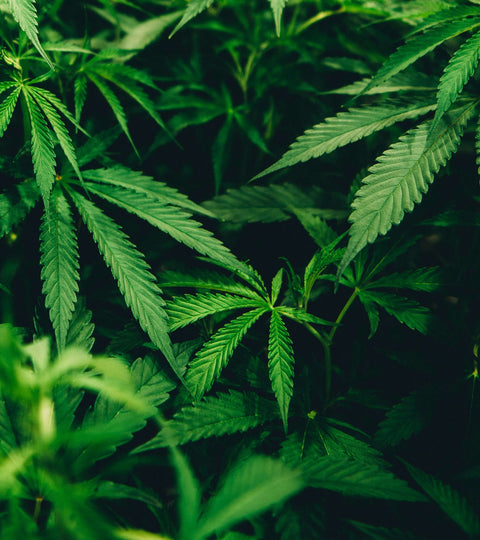When will weed be federally legal and what does the new descheduling mean?
Table of Contents
- Introduction
- Key Takeaways
- Understanding the DEA's Descheduling Proposal
- Implications for the Cannabis Industry
- Medical Research Opportunities
- Political and Legislative Context
- Market Reaction and Industry Response
- Taxation and Financial Considerations
- Legal Challenges and Regulatory Uncertainties
- Future Outlook and Remaining Questions
- Frequently Asked Questions (FAQs)
- My Takeaway
Introduction
A historical moment occurred last week for the cannabis industry. On Tuesday April 30th, 2024 the Drug Enforcement Administration (DEA) has agreed to reclassify marijuana from a Schedule l drug, down to a Schedule lll drug under the Controlled Substance Act (CSA), this move marks as one of most significant changes in marijuana reform since cannabis was outlawed in 1970.
Enhance your cannabis journey and explore Goldleafs Cannabis Taster, The Patient Journal, and The Grow Planner. Track your sessions and know your grow.
Key Insights
- The reclassification of marijuana as a schedule three drug by the DEA is a significant step towards marijuana reform in the US. It acknowledges the legitimate medical benefits of cannabis and sets the stage for potential federal legalization.
- The most profound impact of this policy change would be on taxes for cannabis companies. By moving from schedule one to schedule three, companies can avoid the punitive tax measures reserved for drug traffickers, potentially leading to financial success.
- While the reclassification is a positive development, it does not address other pressing issues in the cannabis industry, such as banking challenges and the ability to list on major stock exchanges. Further policy changes are needed to address these issues.
- State-licensed cannabis companies still face uncertainties regarding product sales and FDA approvals. The move to schedule three does not provide a legal fix for these challenges, and compliance with forthcoming regulations may be required.
- The DEA’s decision does not legalize cannabis at the federal level. The current dispensary model remains unlawful under federal law, and more policy changes are necessary to fully address the criminal status of the industry.
Understanding the DEA's Descheduling Proposal
The DEA has proposed moving marijuana from its current status as a schedule l narcotic, alongside heroin and LSD, to schedule lll, which includes drugs such as Ketamine, Tylenol with Codeine, anabolic steroids, and opioid use disorder medication Buprenorphine.
So what does this mean? When will weed be federally legal?
This move could have a profound impact on the cannabis industry, particularly in terms of taxes. However, it does not address the important issues of business banking or allow US-based cannabis companies to be listed on major stock exchanges.
Implications for the Cannabis Industry
In an interview this week with Fox News, former Drug Enforcement Administrator (DEA) Asa Hutchinson said, rescheduling proposal is “understandable”. “I think it reflects the reality of today's both culture but also the public sentiment. That's most significant,” towards the medical value of cannabis. “Whenever we see over a dozen states now have medical marijuana, clearly there’s a movement for reclassification, and it's not a surprise to me”.
“Its important to understand that a Schedule lll reclassification would not legalize it. It might lower certain penalties for cannabis related activity, but it will remain illegal.” - Asa Hutchinson (Former DEA Administrator)
Medical Research Opportunities
Another important factor of what rescheduling will do is boost medical research. Easier access for researchers to study marijuana's effects could lead to new medical applications. For so many years the Drug Enforcement Administration (DEA) has classified cannabis as a schedule 1 drug meaning, these drugs are considered to be the most dangerous in terms of addiction and dependence.
Here are some of the factors considered when classifying a drug into Schedule I:
-
High potential for abuse: This means that the drug is likely to be misused or abused by people.
- No currently accepted medical use: There is no recognized medical use for the drug in the United States.
-
Lack of accepted safety: The drug is not considered safe for use under medical supervision.
Examples of Schedule I drugs:
- Heroin
- LSD (lysergic acid diethylamide)
- Marijuana (cannabis)
- MDMA (ecstasy)
- Peyote
- Methaqualone
Reclassifying cannabis from Schedule I to Schedule III is expected to boost medical research opportunities in a few key ways:
-
Reduced Bureaucracy: Schedule I drugs face the most stringent research hurdles. Reclassifying marijuana makes it easier for researchers to obtain approval for studies involving the plant. This includes obtaining the drug itself, which is currently a complex process.
-
Increased Funding: Research on Schedule I drugs is often seen as riskier by funding agencies due to the perceived dangers. Reclassification could make cannabis research more attractive to funders, leading to more financial support for studies.
-
Standardized Products: Schedule III allows researchers to study marijuana with more control over the product. This means they can use standardized strains or extracts, leading to more reliable and comparable research results.
-
Collaboration with Industry: Schedule I restrictions make collaboration between researchers and cannabis businesses difficult. Reclassification could allow for partnerships, giving researchers access to industry knowledge and resources.
Additional points to consider:
-
Not an Immediate Fix: While reclassification is a big step, it won't eliminate all research barriers. Researchers will still need to navigate DEA and FDA regulations.
-
Focus on Medical Use: Schedule III research will likely focus on the medicinal properties of marijuana, not necessarily recreational uses.
Overall, reclassifying cannabis is expected to significantly improve the environment for medical research on this plant. This could lead to a better understanding of its potential therapeutic benefits and the development of new cannabis-based medications.
Political and Legislative Context
Since October 2022 President Joe Biden asked the Department of Health and Human Service (HHS), including the attorney general to review, “expeditiously” how marijuana is scheduled under federal law. By August 2023 the Department of Health and Human Services (HHS) completed its review concluding that cannabis has some legitimate medical benefits and sent its recommendation to the DEA asking the agency to reclassify marijuana as a schedule lll drug.
Also Read: How to Navigate the CBD Market for Beginners
President Biden also addressed the subject in a State of the Union Address in March declaring that, “no one should be jailed for using or possessing marijuana”. The Proposal is not yet final as it must first clear the White House Office of Management and Budget to undergo a public comment period.
Majority Leader Chuck Schumer (D-NY), Sen. Ron Wyden (D-OR), and Sen. Cory Booker (D-NJ) held a press conference on Wednesday May 1st about the Cannabis Administration and Opportunity Act. Multi-state operators (MSO) like Canopy Growth Corporation (CGC), Cronos Group (NASDAQ: CRON) all soared after the news reached the public. Some pot stocks were up 25% within hours of the AP report.
Market Reaction and Industry Response
The big news that the Biden Administration would reclassify cannabis immediately boosted the $28 billion cannabis industry for 24hrs. Whats states is weed legal in? The marketplace is composed of 38 states that have some form of regulation in marijuana sales, with 24 states allowing sales to people 21 years and older.
So what states is weed legal? Here's a map from the National Institute on Alcohol Abuse and Alcoholism (NIAAA)
David Culver, vice president of Industry Trade and lobbying organization of the US Cannabis Council said, “it goes without saying that this is the most significant cannabis reform in modern history and sets us on the clear path to federal legalization”. The most profound impact the DEA's historic policy change would have on licensed cannabis companies would be on taxes.
Taxation and Financial Considerations
The big move from schedule l to schedule lll, means that cannabis companies will not have to file under US code 28e, a punitive tax measure reserved for drug traffickers that bans most deductions.
The effective tax rate for most cannabis companies in the US, is around 70-80% of gross revenue.
Culver says, “Removing the 280e burden is enough for the industry to have a turning point and succeed financially”. Culver believes that ending the ban on cannabis at the federal level will open opportunities for better reform in the future. Crossing our fingers.
He also added, “We won't be sitting next to heroin anymore so lawmakers will have an easier time working on additional cannabis reforms”, said Josh Schiller an attorney and partner at Boys Schiller Flexner says, “the move to schedule 3 is a step in the right direction but not enough”.
Legal Challenges and Regulatory Uncertainties
Schiller and David Boy are suing attorney general Merrick Garland on behalf of several cannabis companies in the state of Massachusetts are challenging the federal prohibition of marijuana and the government's ability to interfere with state regulated cannabis programs. “This will not provide the relief our lawsuit seeks but it is the clearest statement that the government no longer has a policy to eradicate marijuana across the US”. The immediate effect will be that cannabis companies will no longer be, “treated as criminal Enterprises for tax purposes”.
The rescheduling of cannabis however provides no legal fix to the banking issues that have long held back the industry to have the ability to operate a business normally. Nor will it allow US based cannabis companies to be listed on the New York Stock Exchange or the NASDAQ.
Chiller says, “there's a question as to whether recreational stores can continue to exist or whether they need to obtain some form of Licensing to comply with whatever regulations are forthcoming”.
Also Read: Why is Cannabis Journaling a Great Wellness Practice
Future Outlook and Remaining Questions
Andrew Freedman the executive director of the the Washington DC based nonprofit, Coalition for Cannabis Policy Education and Regulation, cautions people not to think “the DEA is legalizing weed” he says, “this has little to no actual impact to the current criminal status of the cannabis industry or the criminality of using it as a consumer.” So in other words the current dispensary model that has rolled out across America state by state for so many years will still continue to be unlawful under federal law and will require more policy changes.
What Schiller and Boy advocate is for no federal oversight over State licensed cannabis companies, while the NEW rescheduling of marijuana may require businesses that work with the plant, more Federal oversight.
Frequntly Asked Questions (FAQs)
Q. What does the DEA reclassify marijuana from Schedule I to Schedule III mean?
A: The DEA's decision changes marijuana's classification from a Schedule I drug (no accepted medical use and high potential for abuse) to a Schedule III drug (some accepted medical uses with moderate potential for abuse). This signifies a federal acknowledgement of marijuana's potential therapeutic benefits.
Does rescheduling marijuana make it legal?
A: No, rescheduling does not legalize marijuana at the federal level. Cannabis businesses operating under state legalization laws are still technically violating federal law. Further policy changes are needed for full federal legalization.
How will rescheduling impact cannabis taxes?
A: Reclassifying marijuana to Schedule III removes cannabis businesses from the punitive tax code (28e) reserved for Schedule I drugs. This could significantly reduce tax burdens and improve cannabis company profitability.
Can cannabis companies now use banks?
A: Federal rescheduling doesn't automatically resolve cannabis banking issues. Financial institutions remain cautious due to federal prohibition, hindering normal banking operations for cannabis businesses.
Will this boost the opportunites for medical research?
A: Yes, reclassifying marijuana makes it easier for researchers to obtain approval for studies involving the plant. This includes obtaining the drug itself, which has been a complex process.
Will this rescheduling affect recreational marijuana sales?
A: No, the legality of recreational sales remains under federal law. Rescheduling doesn't change the current dispensary model, which might require future adjustments to comply with forthcoming federal regulations.
What are the next steps for the cannabis industry?
A: Further federal legislative action is necessary to address remaining issues like banking access, exchange listings, and the legal status of recreational sales. The upcoming presidential election might influence future cannabis policy changes.
My Takeaway
So, when is weed going to be legal? I dont know. Overall, this is a developing situation that we're all waiting patiently for. The move to schedule 3 still leaves plenty of unanswered questions, including whether state license cannabis companies have to stop selling products until the US Food and Drug Administration rules on these new approvals. It could also take some time before the DEA finalizes the reclassification, and the full effects will likely take even longer as it plays out. The White House Office of Management and Budget (OMB) also needs to sign off on it. Then there will be a public comment period before a final decision is made.
This is definitely a historical moment for the industry and we've been waiting patiently for many years for this day, but will this move the needle in a positive direction for the industry? Maybe, or will this only benefit the larger multi-state operators (MSO’s). This year's presidential election will be interesting to see how some of the candidates will use cannabis to their advantage. Will they actually help and bring a positive change to the industry, or will they dangle this topic like a carrot for extra votes.
Dont forget to checkout all of our journals and find the journal that works for you. Grow, Love, Heal, and Elevate with Goldleaf
Source links:




